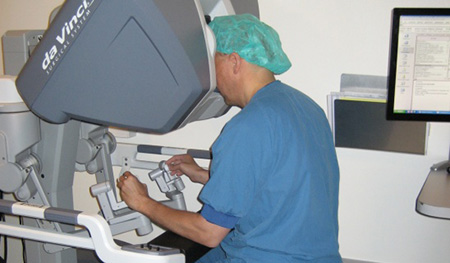
Survival of colorectal cancer has improved in Denmark in recent decades Iversen LH et al 2005 a, Iversen LH et al 2007, Iversen LH et al 2012 and most pronounced among elderly patients Iversen LH et al 2005 b. Survival is strongly influenced by comorbidity Iversen LH et al 2009 a and the development of medical complications is the most significant factor in postoperative mortality after emergency surgery Iversen LH et al 2008. Diagnostic delay has a negative impact on survival of rectal cancer Iversen LH et al 2009 b. Outcome is in a complex way associated with caseload and specialty Iversen LH et al 2006 a, Iversen LH et al 2006 b. The 30-day mortality rate has for years been higher in Denmark than in neighbouring countries, but has decreased significantly since 2007, a decrease which has been associated with implementation of laparoscopic surgery Iversen LH 2014. A study on whether this improvement is associated with improvement in long-term survival is to be carried out in the immediate future. The laparoscopic approach is now standard surgery in non-advanced colorectal cancer and we have documented that the quality of the specimens is as least as good as in open surgery. Currently, the quality of surgical specimens and interpersonal variation in that evaluation are being evaluated in collaboration with international experts. Implementation of laparoscopic rectal cancer surgery has been associated with an increased risk of ureteric lesions in a national study Andersen P et al 2014. Whether laparoscopic surgery is associated with a lower risk of ventral hernias and bowel obstruction are being studied in a national study. Inadvertent residual mesorectal tissue which has been left after rectal cancer surgery can be detected by MRI Bondeven P 2013 and its consequences on local recurrence are currently being studied. Additionally, we are studying the local recurrence rate after different surgical methods in rectal cancer in a nationwide study by use of MRI. The department has recruited the second largest number of patients in an international randomised trial, ROLARR, evaluating robot-assisted and laparoscopic surgery for rectal cancer with respect to conversion rate and quality of specimens. The department participates in other international multicentre randomized trials, among others, FOxTROT, aiming at studying the effect of neoadjuvant chemotherapy on outcome in advanced colonic cancer.
Contacts:
Søren Laurberg, Professor, Consultant Surgeon, DMSci, soerlaur@rm.dk
Lene Hjerrild Iversen, Professor, Consultant Surgeon, DMSci, PhD, lene.h.iversen@dadlnet.dk
Ditte Louise Munkedal, MD, PhD student, Ditte.Munkedal@viborg.rm.dk
Jesper Beck Jørgensen, MD, PhD student, beckjesper@hotmail.com
Peter Andersen, MD, PhD student, peterand@rm.dk
Pål Wara, Consultant Surgeon, DMSci, pw@aarhus.rm.dk
Niels Thomassen, Consultant Surgeon, niethoma@rm.dk
Ken Ljungman, Consultant Surgeon, PhD, kenljung@rm.dk